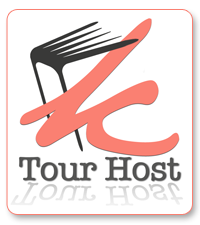Summary (Taken from Quirk Books Product Page)
"In 1784, Thomas Jefferson struck a deal with one of his slaves, 19-year-old James Hemings. The Founding Father was traveling to Paris and wanted to bring James along “for a particular purpose”—to master the art of French cooking. In exchange for James’s cooperation, Jefferson would grant his freedom.
 Thus began one of the strangest partnerships in U.S. history. As
James apprenticed under master French chefs, Jefferson studied the
cultivation of French crops (especially grapes for winemaking) so they
might be replicated in American agriculture. The two men returned home
with such marvels as pasta, French fries, champagne, macaroni and
cheese, crème brûlée, and a host of other treats. This narrative
nonfiction book tells the fascinating story behind their remarkable
adventure—and includes 12 of their original recipes!"
Thus began one of the strangest partnerships in U.S. history. As
James apprenticed under master French chefs, Jefferson studied the
cultivation of French crops (especially grapes for winemaking) so they
might be replicated in American agriculture. The two men returned home
with such marvels as pasta, French fries, champagne, macaroni and
cheese, crème brûlée, and a host of other treats. This narrative
nonfiction book tells the fascinating story behind their remarkable
adventure—and includes 12 of their original recipes!"Amazon (Kindle) /Barnes and Nobles (Nook)
Review:
Reading history books can be a steep order for me. There is something really unsavory about history books because some of them can be drudgery to read, as the reader is literally forced to pore over far too many intricate details for the brain to effectively process. Oftentimes ,the premise of these books though are very appealing, like history books about the history of early chemistry aka. alchemy or the Salem Witch Trials. They often have that facade of being an intellectual feast for the eyes, until you are thrown into the chaotic mess of excessive historical details.
When looking at the cover for Thomas Jefferson's Creme Brulee, I certainly hoped that the eye-pleasing, sumptuous feast on the cover was not just a deceptive cover-up for what could have easily been a dull book. Fortunately, Thomas J. Craughwell is not just an adept historian, but a very competent writer who knows how to write competent prose that is very accessible for those who are not professional historians. Remarkably, the book accomplishes the feat of being an engrossing fictional story that effectively detaches you from the real work. In the course of reading this book, I happened to be on a train commuting back and forth for work; the author's aesthetically-pleasing prose allowed me to completely escape into the vivid details of Thomas Jefferson's culinary tour of France and the northern regions of Italy.
Additionally, the book manages to educate you about Thomas Jefferson's multifaceted personality. In many grade-school history courses, Thomas Jefferson is always woefully overshadowed by more seemingly important men like George Washington. Even stranger, his affairs with female slaves are often overemphasized, as though to portray him as some promiscuous heathen.Also, we never hear very much about Deist views,or his rather bold, controversial views of institution of the church. In this book, we learn more about his benevolence, when it came to responding to some of his slaves. Rather than judge him from a twenty-first century perspective, Thomas J. Craghwell reveals more layers that present Thomas Jefferson as a very complicated, truly fascinating individual.
Instead of offering us meager portion or a full-blown meal consisting of poorly made food, Thomas J. Craghwell offers the reader a historical meal that is meticulously prepared and mindful of his audience's various food allergies. Most of us have an aversion to historical books that are far too bloated or slanderous. This is a book that carries a balanced perspective of a very intelligent figure in our country's history, and it also grants us a wonderful history tour with a side of savory details about different types of french cuisines and wine. By the end of the book, you'll want to concoct some of the dishes within the recipe section at the end of the book. Overall, I highly recommend this thought-provoking, satisfying read for anyone who loves a well-written history that is not just a poorly organized information dump.










No comments:
Post a Comment